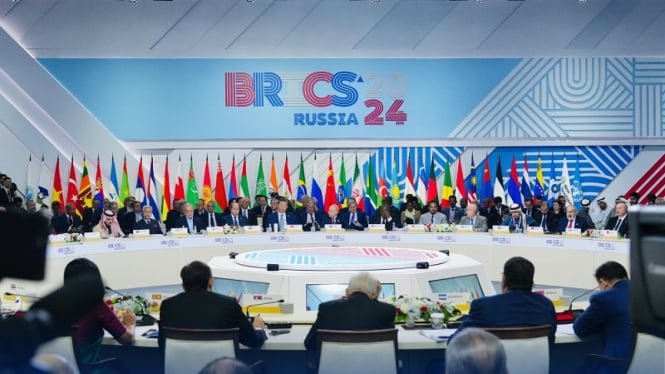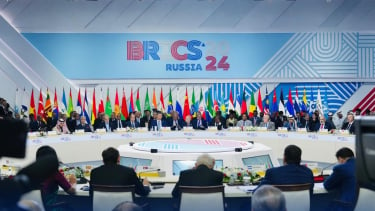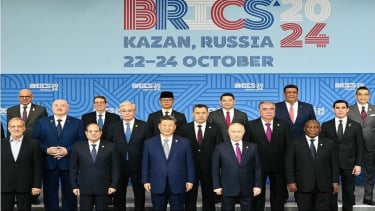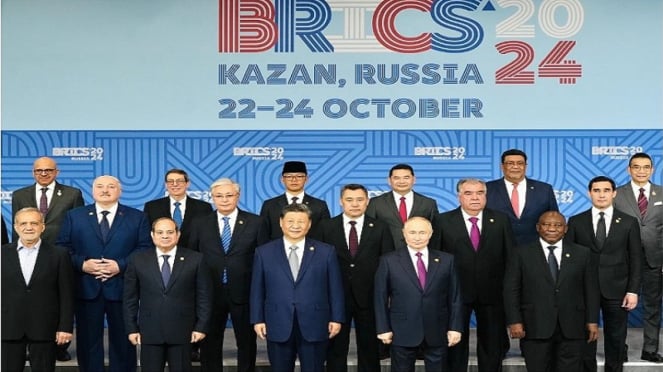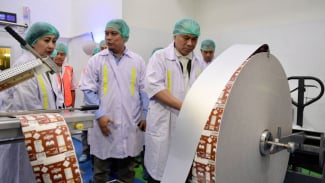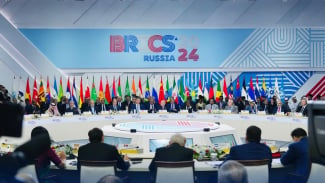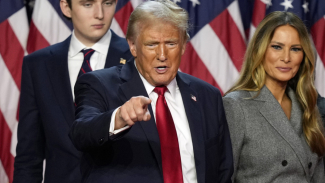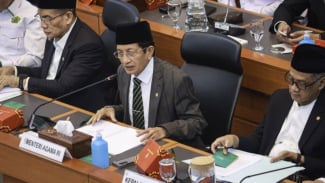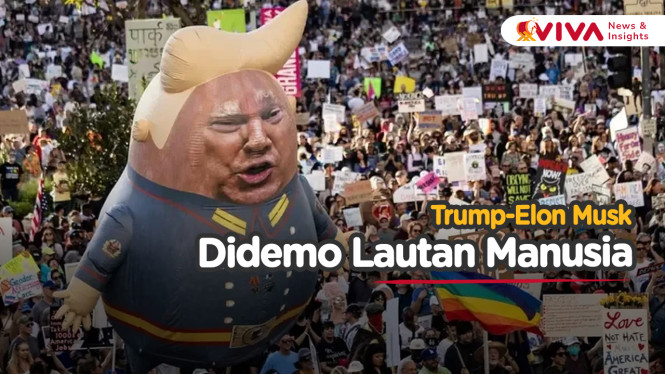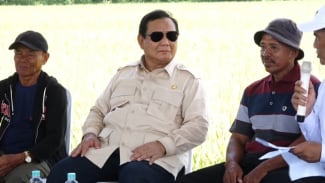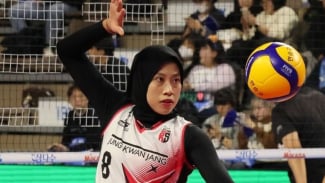Join BRICS: Indonesia Must B alance Economic Gains and Geopolitical Risks
- Kemlu
Jakarta, VIVA – Permata Bank Chief Economist Josua Pardede stated that Indonesia's success in BRICS will depend on a highly cautious strategy to achieve ideal goals in both global economic and political aspects.
Pardede explained that, in response to the threat of increased import tariffs by Donald Trump against BRICS member countries, the Indonesian government could take several strategic measures.
Such tariff hikes could impact Indonesia's key exports to the US, including manufactured goods, textiles, electronics, and agricultural products, potentially reducing the competitiveness of Indonesian products in the US market.
Indonesia resmi masuk ke dalam BRICS
- Dok Sugiono
"By joining BRICS, Indonesia has the opportunity to boost intra-BRICS exports and reduce dependence on traditional markets like the US," Pardede said on Thursday (Jan 9).
The tariff threat highlights the potential for escalating tensions between the US and BRICS countries.
He argued that this could affect bilateral trade relations between Indonesia and the US, as well as the dynamics of global geopolitics.
To address this threat, Indonesia must balance its economic strategies to maintain trade relations with the US while maximizing the benefits of BRICS membership.
Some suggested strategies include, first focusing on BRICS and global South markets to mitigate the impact of reduced access to the US market, such as expanding exports to China, India, Russia, and South Africa.
Additionally, Indonesia should promote the diversification of export products toward higher value-added goods, such as electronics and technology-based products.
Second, leveraging funding from the New Development Bank (NDB) BRICS to support infrastructure development and clean energy projects.
Third, actively participating in multilateral economic diplomacy through BRICS to advocate for fairer trade rules and protect the interests of developing countries.
Fourth, implementing reforms to improve the competitiveness of Indonesian products in global markets, including providing incentives for the manufacturing and technology sectors.
"Indonesia must play a strategic role as a bridge between BRICS and Western countries, particularly the US, by emphasizing its independent and active foreign policy. This strategy will help minimize potential US retaliation while safeguarding national interests on the global stage," he concluded.

